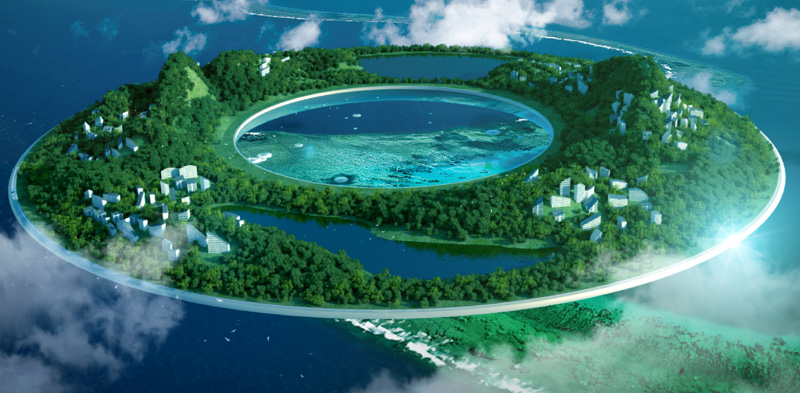DIS x ECOCORE present the disaster issue
Keywords: Alessandro Bava, Apocalypse, climate change, disaster issue, ecocore, ecology, Eden, introduction, leo dicaprio, Livia Firth, Nature, pamela anderson, Rebecca Sharp, Stella McCartney, sustainable, Titanic, UN, vivienne westwood, zine
By Alessandro Bava and Rebecca Sharp
‘Climate change is not hysteria, it’s a fact’
— Leonardo DiCaprio at the U.N.
The disaster issue, guest edited by ECOCORE, looks at the ways we understand nature today, explores the forgotten corners of ecology, and observes how a new political format is emerging in response to environmentalism’s struggling project.
Ecology is an unpleasant and unattractive subject that provokes a morbid anxiety. It reminds us of our impending finitude, crisis, and death. It’s a subject that has long been culturally and governmentally repressed. As it takes accelerating immediacy on a world stage, it becomes increasingly urgent to reimagine the co-existence of human economies and natural ecosystems.
Since Leonardo DiCaprio’s UN address, the term ‘disaster’ has been embedded in our consciousness when thinking about our eco crisis. His assigned authority on the issue recalls the problem of ecology as unsexy, and creates a sense of unease about a general social demand to glamorize morality and political engagement. Why do we look to celebrities for policy making? Looking at Pamela Anderson’s involvement with environmental and animal protection charities, Stella McCartney’s ethical fashion, Livia Firth’s Green Carpet Challenge, Vivienne Westwood’s campaigning, it seems clear that ecology is so undesirable a subject it only becomes an aspirational project via our understanding of famous characters. We suspend our disbelief, as the Titanic star points out, ‘as if it were a fiction’.
After the Climate Change march in New York, we are left in a state of ambivalence. While it’s been viewed as impactful and at the very least rousing, there’s also an underlying sense of tragedy and defeat.
Can we curb our pursuit of the Western lifestyle, which at the current rate would take us 4 planets to sustain? There is no doubt that we over-consume, and if we continue living as we do we will inevitably and imminently exhaust our resources. The last 40 years have seen us lose half the earth’s wildlife, while we set nature to work for us as if it were machine. There is a palpable atmosphere of ‘the end is nigh!’.
There is no planet B!
The disaster issue wants to construct a space for hope, entertaining the belief that we have the opportunity to change our way of being on earth, negotiating and reorganising the ethics of ecology. The work in this issue operates as an ‘ambient poetics’, denoting instances of environmental suffering, as well as alerting us to the ecological catastrophe that has arguably already happened. ECOCORE stands to operate as a grassroots representative for a concerned generation, aiming to address our future relationship with nature from the perspective of art and culture, assembling a mix of real world phenomena, theoretical investigations, and artists’ contributions.
by Alessandro Bava and Rebecca Sharp
Editorial Assistants: Claire Gustavson and Ada O’Higgins
Developer: Jon Lucas
ECOCORE is an irregularly published ecology zine founded by Alessandro Bava. It has pioneered discussions around ecology since 2010, by thrusting ecology into the agenda via the commissioned work of artists, writers, poets etc… ECOCORE questions the established rhetorics of environmentalism, without providing definitive answers. Nevertheless it is urgent to decide whether we care about extinction or would like to ride the party while it lasts. ECOCORE is interested in the transition from the idea that nature exists to sustain civilization, towards a reorientated acknowledgement of our debt and responsibility.
2. Digital collective AUJIK presents a new work,’Plasticity Unfolding.’
5. Andrew Durbin reports from the People’s Climate Change March.
6. Andrew Norman Wilson premieres a new video work, ‘Uncertainty Seminars’.
7. Artist Eduardo Villanes talks to GMO giant Monsanto, Ecocore interviews Eco-Christians.
8. Isaac J Lock explores Eco-Terrorism from a personal perspective.
10. Martti Kaliala and Daniel Keller go back to the sea and explore Seasteading.
11. Alex Dolan and Carlos Reyes do a special intervention on our homepage, which will run throughout the issue.
12. Tue Greenfort discusses his new ecology driven bodies of work with Sarah Lookofsky.
13. Hans Ulrich Obrist interviews Timothy Morton on the aesthetics of ecology.
16. Felix Melia, Josh Bitelli, and Max Ortega burned sage and filmed shamanic fashions.
18. Dark Psychedelia, a conversation between Gean Moreno and Michael Jones McKean.



